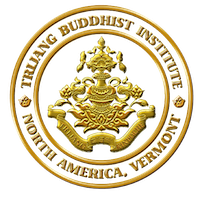The Thirty-Five Buddhas Confession and Purification Practice is a Mahayana Buddhist ritual aimed at purifying negative karma and ethical transgressions. It is based on the Sutra of the Three Heaps (Triskandhadharmasutra), which includes prostrations, confession, and dedication. The practice helps practitioners overcome obstacles to spiritual progress by purifying karmic imprints and accumulating merit.
Key Components:
1. Prostrations: Physical homage to the Thirty-five Buddhas, symbolizing respect and devotion.
2. Confession: Admitting ethical downfalls openly, guided by the Four Opponent Powers:
• Regret: Genuine remorse for past misdeeds.
• Reliance: Taking refuge in the Thirty-five Buddhas as sources of purification.
• Resolution: Commitment not to repeat the transgressions.
• Remedial Action: Engaging in virtuous activities to counteract negativity.
3. Dedication: Prayers to dedicate merits for the benefit of all beings.
Purpose:
The ritual purifies both minor and major karmic violations, including the five heinous crimes and ten unvirtuous deeds. It fosters spiritual growth by clearing mental obscurations caused by negative karma, thus enabling practitioners to progress on the path to enlightenment.
Practitioners typically visualize the Thirty-five Buddhas during recitation and prostrations, cultivating faith, humility, and conviction in their ability to overcome negativities

